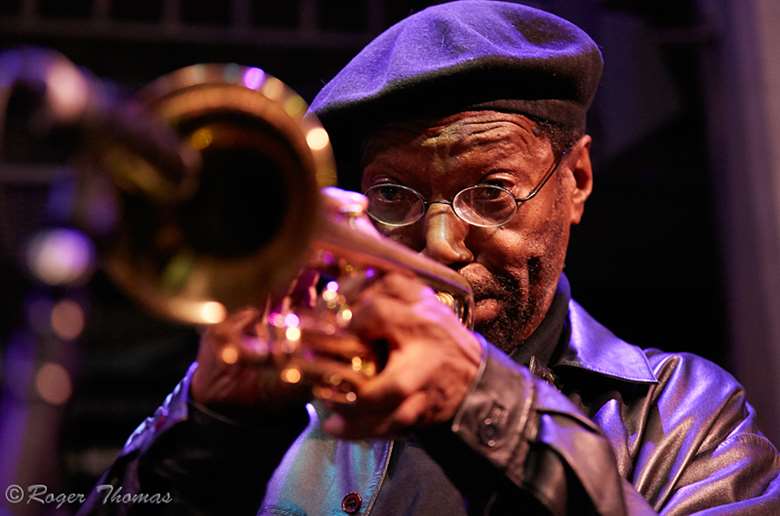Tolliver Eventually Hits The Spot At London's Jazz Cafe
Kevin Le Gendre
Monday, November 11, 2019
Veteran trumpeter pulls triumph from the jaws of defeat in Camden with a rousing performance forging vital living links to key chapters in black music


Register now to continue reading

Thank you for visiting Jazzwise.co.uk. Sign up for a free account today to enjoy the following benefits:
- Free access to 3 subscriber-only articles per month
- Unlimited access to our news, live reviews and artist pages
- Free email newsletter